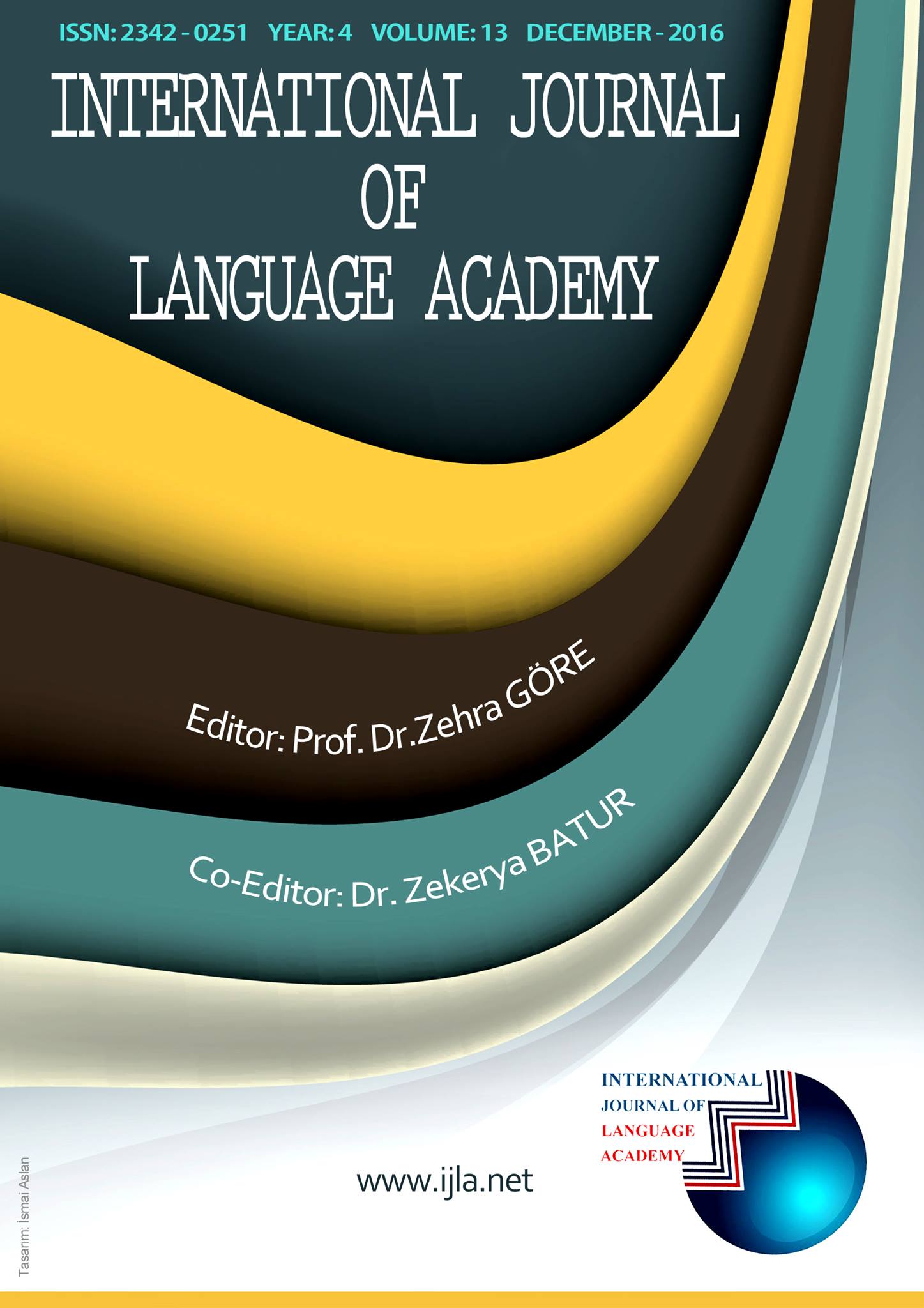Author :
Abstract
Bu çalışma Thomas Hardy’nin “Hap” (1898), “The Impercipient” (1898), “the Darkling Thrush” (1900) ve “After a Journey” (1913) adlı dört şiirini incelemeyi ve Hardy’nin Viktoryan romance olarak anılmasına ragmen şiirlerindeki içerik ve üsluptan dolayı modern bir şair olduğunu ortaya koymayı amaçlamaktadır. Bu makalede çalışılan bir diğer nokta ise modern dünyanın getirdiği kafa karışıklığı, belirsizlik ve karmaşanın Hardy’yi şüpheci, Tanrı’nın varlığını sorgulayan ve karamsar bir birey haline getirmiştir olmasını ortaya koymaktır. Bu sebepten, şiirlerinde sergilediği belirsiz ve değişen dünyaya karşı olan kendisinin kafa karışıklığı, pesimizmi ve şüpheciliği onu modern şiirle anılan şairlerden kılmıştır. Örneğin, “Hap” ve “the Impercipient” şiirlerinde Hardy bir tanrının varlığını bulamaz ve anlayamaz; ne ki, diğer insanların ona nasıl/neden inandığını da merak eder. Şiirlerinde, Hardy ne doğayı (Romantikler gibi) ne de Tanrı’yı över/idealize eder. Hardy’nin pesimizmi, O’nu Romantik ve Viktoryan şairlerden farklı kılıp, modern şair eyler.
Keywords
Abstract
This paper aims to analyse Thomas Hardy’s four poems: “Hap” (1898), “The Impercipient” (1898), “the Darkling Thrush” (1900), and “After a Journey” (1913) by putting forward that Hardy is a modern poet with the contents of his poems although he is considered as a Victorian novelist. The confusion, uncertainty and the complexity of the modern world make Hardy confused, doubter, unbeliever and pessimist. Therefore, his confusion, doubts and pessimism for the uncertain and changing world represented in his poems, in a way, makes him modern as studied in this paper. In “the Impercipient”, and “Hap”, Hardy cannot understand and find the existence of a god but wonders how the others believe in him. In his poems, Hardy idealizes or praises neither nature nor god. Hardy’s pessimism as a writer of naturalist movement makes him different from the Romantics and the Victorian poets.
Keywords
- “Biography: Thomas Hardy.” Poetry Foundation. Poetryfoundation.org. Web. Retrieved November 9, 2016 from https://www.poetryfoundation.org/poems-andpoets/poets/detail/thomas-hardy
- Davie, D. (1972). Thomas Hardy and British poetry. London: Oxford University Press.
- Diniejko, A. (2014). “Thomas Hardy‟s Philosophical Outlook.” Victorianweb: Literature, History and Culture in the Age of Victoria. Retrieved November 10, 2016 fromhttp://www.victorianweb.org/victorian/authors/hardy/diniejko3.html
- ---. (2006). “The Metaphysical Poets.” The Norton Anthology of English Literature. Volume 2. 8th Edition. Eds. Stephen Greenblatt et al. London: W. W. Norton & Company.
- Hardy, F. E. (1962). The life of Thomas Hardy 1840-1928. New York: The MacMillan Press Ltd.
- Howe, I. (1967). Thomas Hardy. New York: Macmillan Company.
- Hynes, S. (2015). The hardy tradition in modern English poetry. The Sewanee Review 88.1 (1980): 33-51. JSTOR. Web.
- Klingopulos, G. D. (1976). “Hardy‟s Tales Ancient and Modern.” p. 406-419. The Pelican Guide to English Literature: From Dickens to Hardy. Ed. Boris Ford. Middlesex: Penguin Books Ltd.
- Murry, J. Middleton. (1949). “Thomas Hardy.” Katherine Mansfield and other literary portraits. London: Peter Nevill, p. 215-229.
- Webb, Timothy. (2007). “Victorian to Modern.” p. 9-24. The Cambridge Companion to Twentieth-Century English Poetry. Ed. Neil Corcoran. Cambridge: Cambridge University Press.





